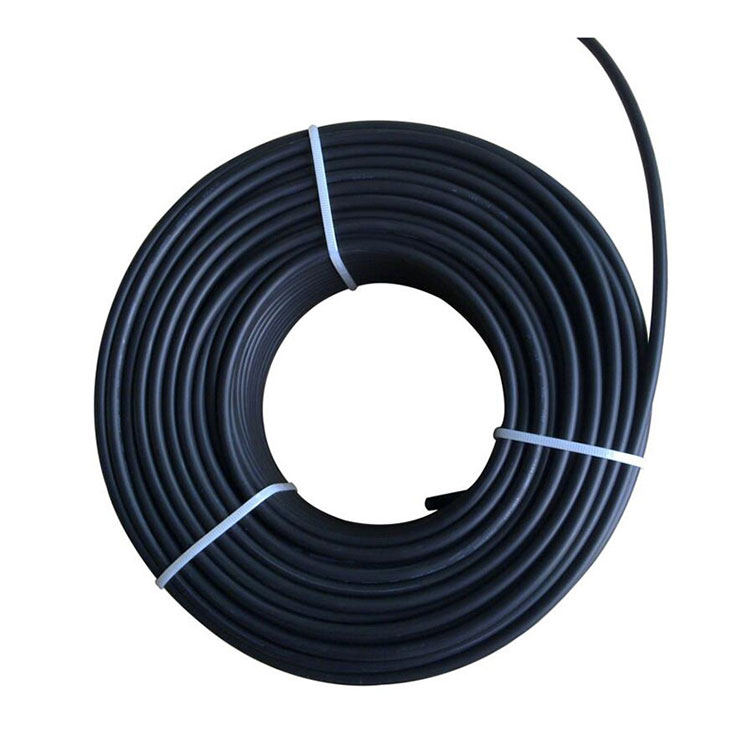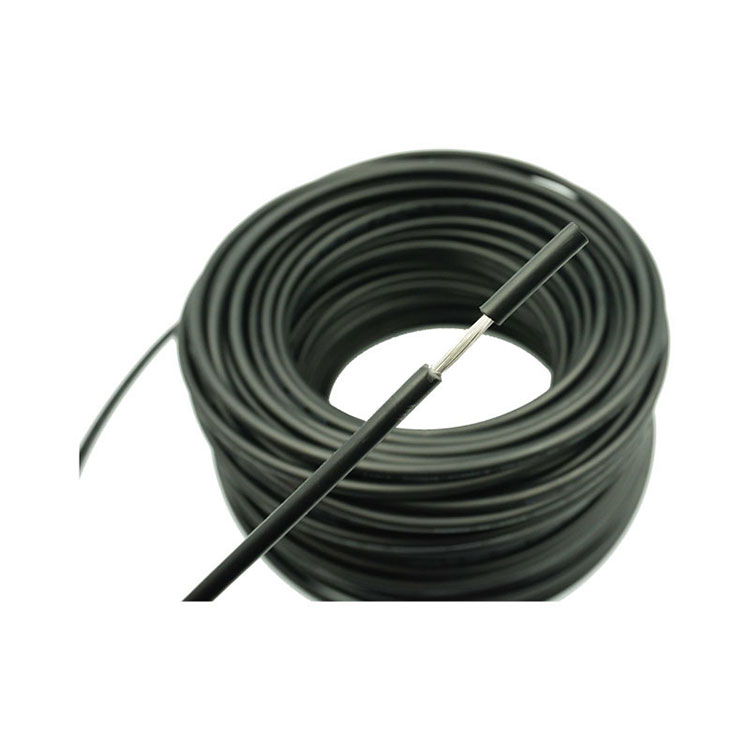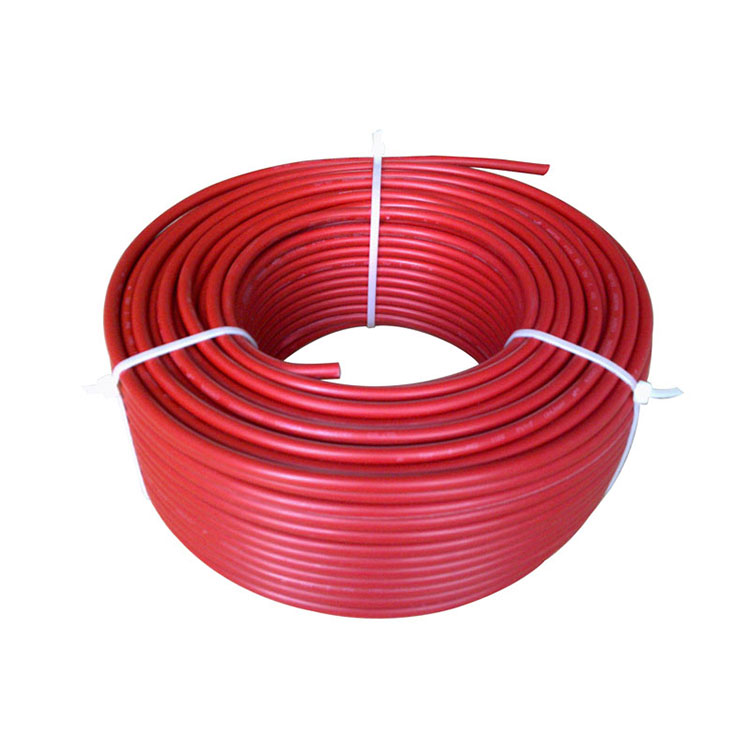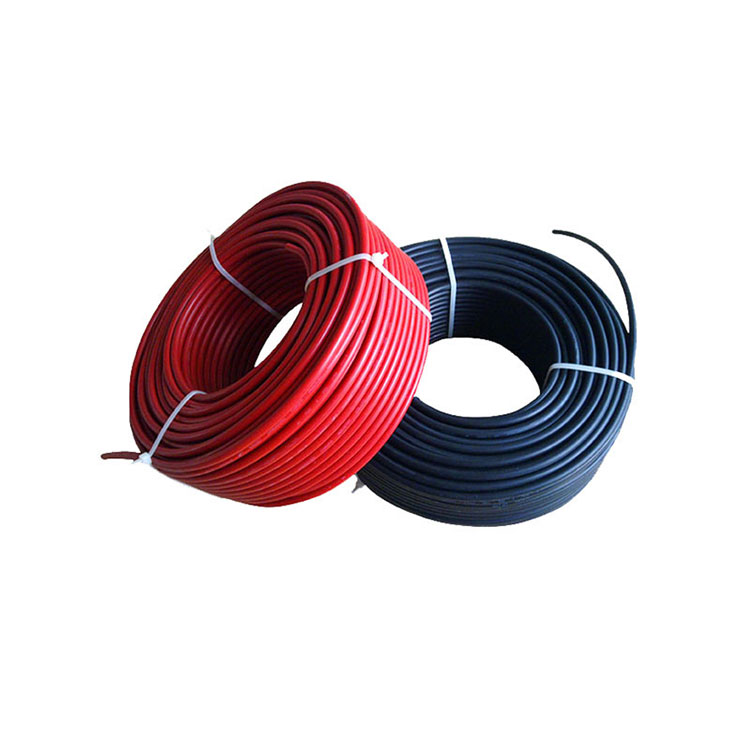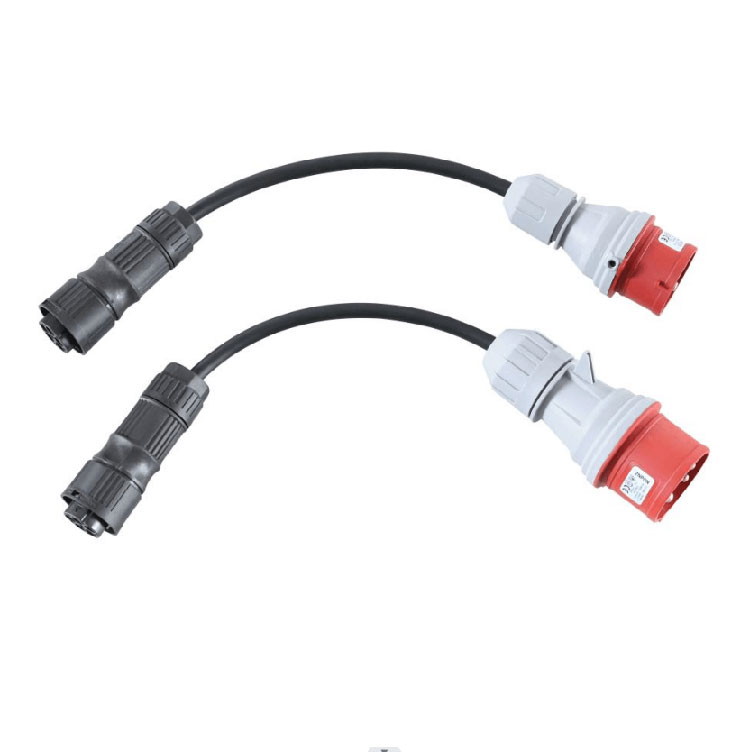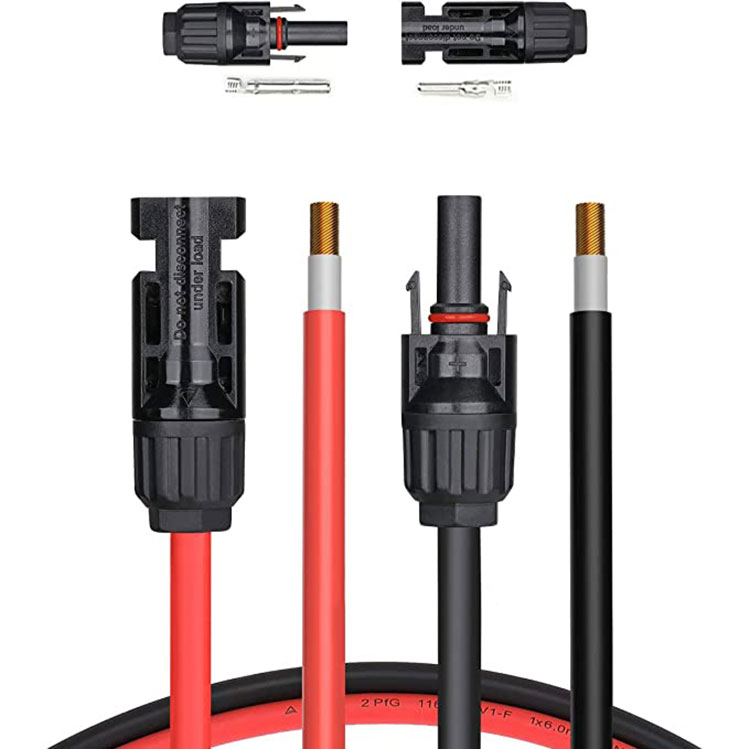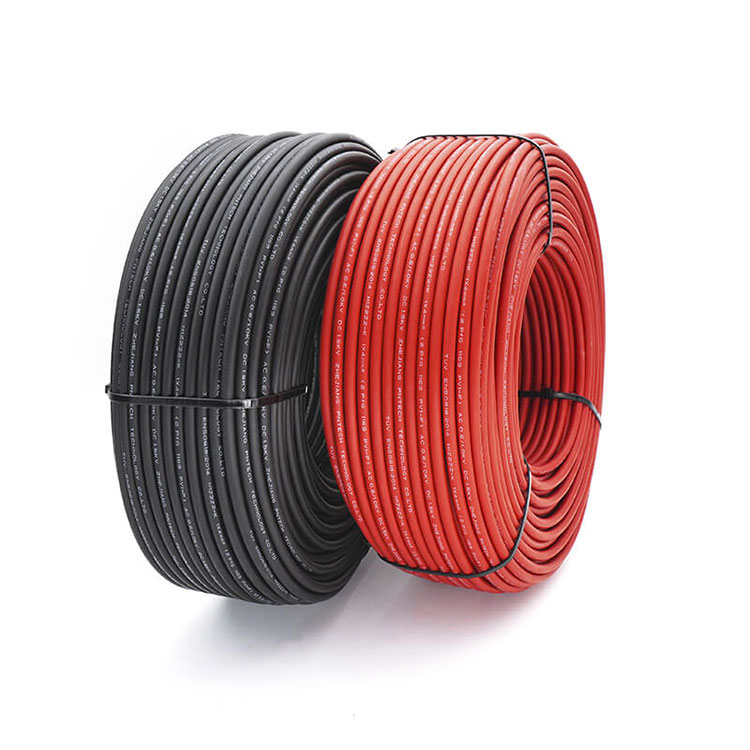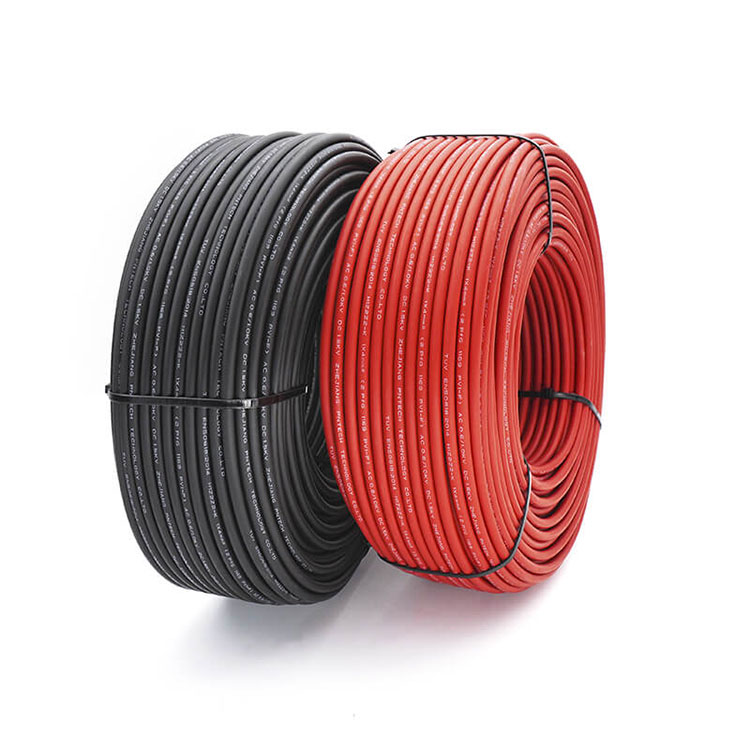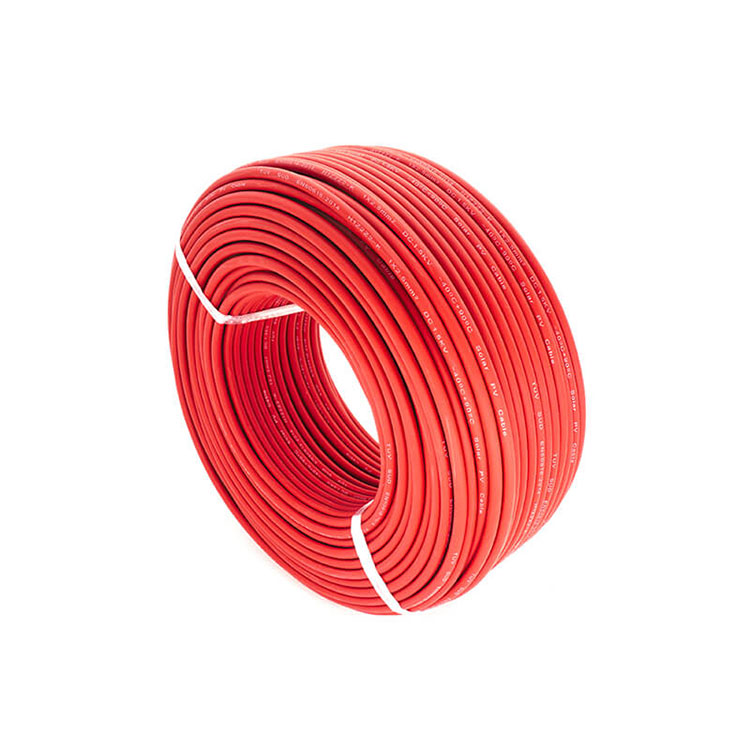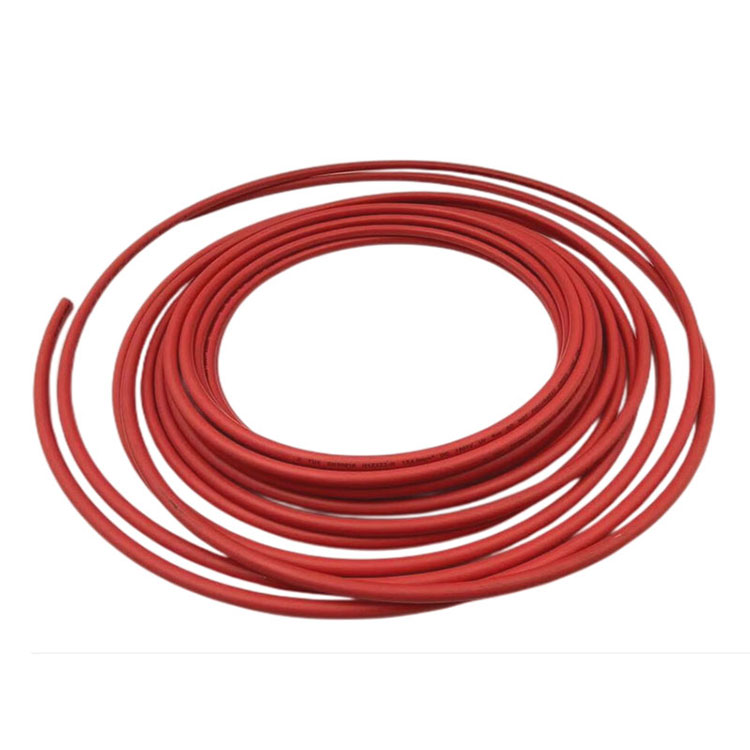PV Cable
Conductor Material: PV cables typically feature tinned copper conductors due to copper's excellent conductivity and resistance to corrosion. Tinning the copper conductors enhances their durability and performance, particularly in outdoor environments.
Insulation: The conductors of PV cables are insulated with materials such as XLPE (Cross-linked Polyethylene) or PVC (Polyvinyl Chloride). The insulation provides electrical protection, preventing short circuits and electrical leaks, and ensures the safety and reliability of the photovoltaic system.
UV Resistance: PV cables are exposed to sunlight in outdoor installations. Therefore, the insulation of PV cables is designed to be UV resistant to withstand prolonged exposure to sunlight without degradation. UV-resistant insulation helps maintain the integrity and longevity of the cable over its operational lifespan.
Temperature Rating: PV cables are designed to withstand a wide range of temperatures, including both high and low temperatures commonly encountered in solar installations. The insulation and sheathing materials used in these cables are selected to ensure optimal performance under varying temperature conditions.
Flexibility: Flexibility is a crucial characteristic of PV cables, allowing for easy installation and routing around obstacles or through conduits. Flexible cables are also less prone to damage from bending and twisting during installation.
Water and Moisture Resistance: Solar installations are subject to exposure to moisture and environmental elements. Therefore, PV cables are designed to be water-resistant and capable of withstanding outdoor conditions without compromising performance or safety.
Compliance: PV cables must comply with relevant industry standards and regulations, such as UL (Underwriters Laboratories) standards, TÜV (Technischer Überwachungsverein) standards, and NEC (National Electrical Code) requirements. Compliance ensures that the cables meet specific safety and performance criteria for use in photovoltaic systems.
Connector Compatibility: PV cables often come with connectors that are compatible with standard PV system components, facilitating easy and secure connections between solar panels, inverters, and other devices.
In summary, PV cables are critical components of photovoltaic systems, providing the necessary electrical connections to enable the efficient and reliable generation of solar power. Proper selection, installation, and maintenance of these cables are essential to ensure the safety, performance, and longevity of the overall solar energy system.
- View as
Solar Industry Extension Cable
You can rest assured to buy Paidu Solar Industry Extension Cable from our factory. Our halogen-free cross-linked polyolefin double-layer photovoltaic cables are specifically designed for use in photovoltaic power systems. These cables are compatible with most PV components such as PV junction boxes and PV connectors, which have a rated voltage of 1000V DC.
Read MoreSend InquirySolar Extension Cable
As the professional manufacturer, we would like to provide you high quality Paidu Solar Extension Cable. A solar extension cable is a cable that is used to extend the reach of a solar panel's power output. It is typically made of rugged, outdoor-rated materials to withstand harsh weather conditions. The cable has connectors at each end that match the connectors on the solar panel and the charge controller or inverter. Solar extension cables come in various lengths and sizes to accommodate different distances. They are essential in setting up a solar power system with the right length cable needed to reach from the solar panels to the charge controller or inverter.
Read MoreSend InquirySolar Cable Pv1-F 1*6.0mm
As the professional manufacturer, we would like to provide you Paidu Solar Cable PV1-F 1*6.0mm. The Solar Cable PV1-F 1*6.0mm is a type of cable specifically designed for connecting solar panels and other photovoltaic systems. It features a single core of copper wire with a cross-sectional area of 6.0mm², making it suitable for carrying high currents in solar energy installations. The cable is insulated with a special type of material that is UV, ozone, and weather-resistant, ensuring long-lasting performance in outdoor or exposed environments. It meets various international standards such as TUV 2 PFG 1169/08.2007 and is generally used for solar power generation, solar system installation, and interconnection.
Read MoreSend InquirySolar Cable Pv1-F 1*4.0mm
The Paidu Solar Cable PV1-F 1*4.0mm is a single-core cable used for the interconnection of photovoltaic panels in solar power installations with a maximum voltage of 1.8 kV DC. It has a cross-sectional area of 4.0mm² (AWG 11) and is made with a flexible copper conductor, double insulation, and a sheath resistant to UV radiation, ozone, and weathering. The "PV" in the name stands for "photovoltaic" and the "1-F" indicates the cable has a single core (1) and is flame retardant (F). It is compliant with international standards such as TÜV and EN 50618.
Read MoreSend InquirySolar Cable Pv1-F 1*1.5mm
Buy Solar Cable PV1-F 1*1.5mm which is of high quality directly with low price. Our halogen-free cross-linked polyolefin double-layer photovoltaic cables are specifically designed for use in photovoltaic power systems. These cables are compatible with most PV components such as PV junction boxes and PV connectors, which have a rated voltage of 1000V DC.
Read MoreSend InquiryXlpe Tinned Alloy Pv Cable
You can rest assured to buy Paidu XLPE Tinned Alloy PV Cable from our factory. The paidu XLPE Tinned Alloy PV Cable is crafted using top-notch XLPE materials that are specifically engineered to withstand various outdoor conditions, including extreme temperatures, UV radiation, and moisture. These cables are designed with durability and longevity in mind, ensuring a dependable and efficient transmission of electricity from solar panels to the rest of the system.
Read MoreSend Inquiry

